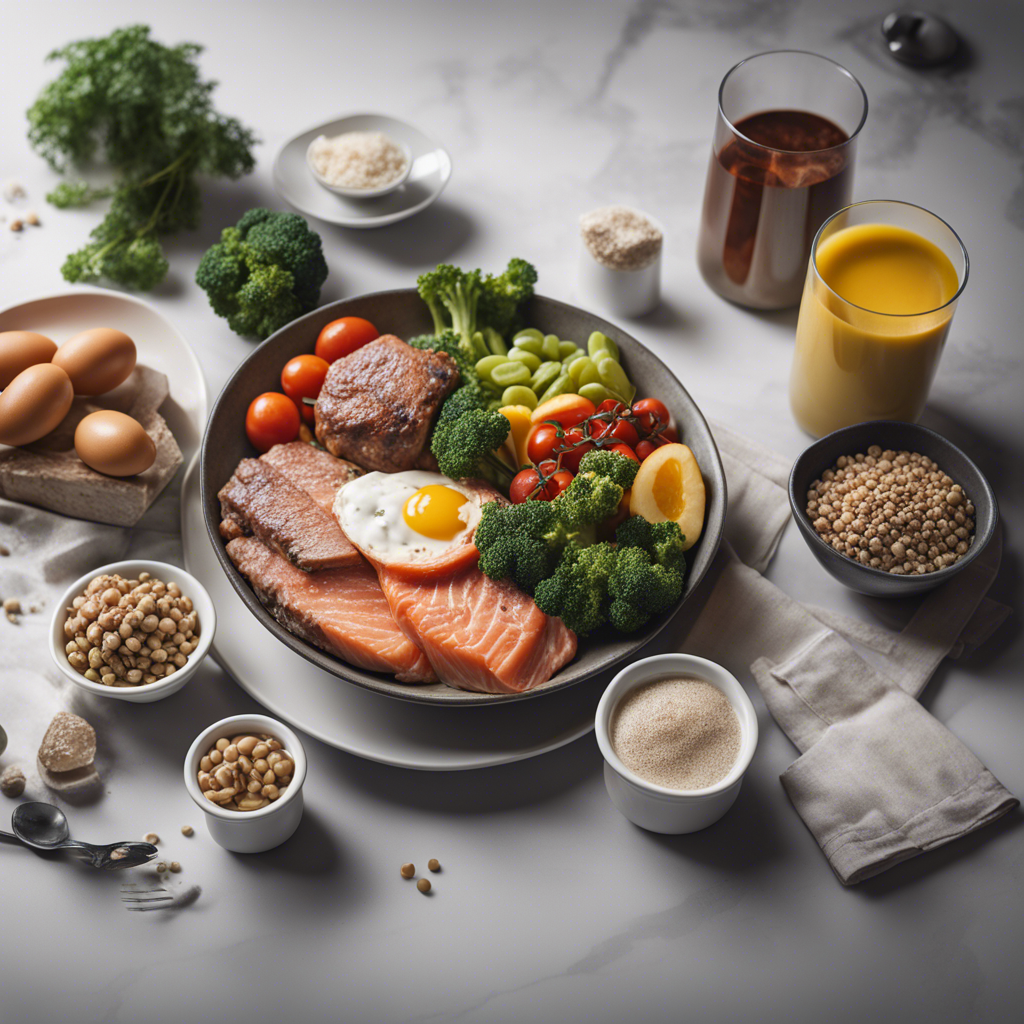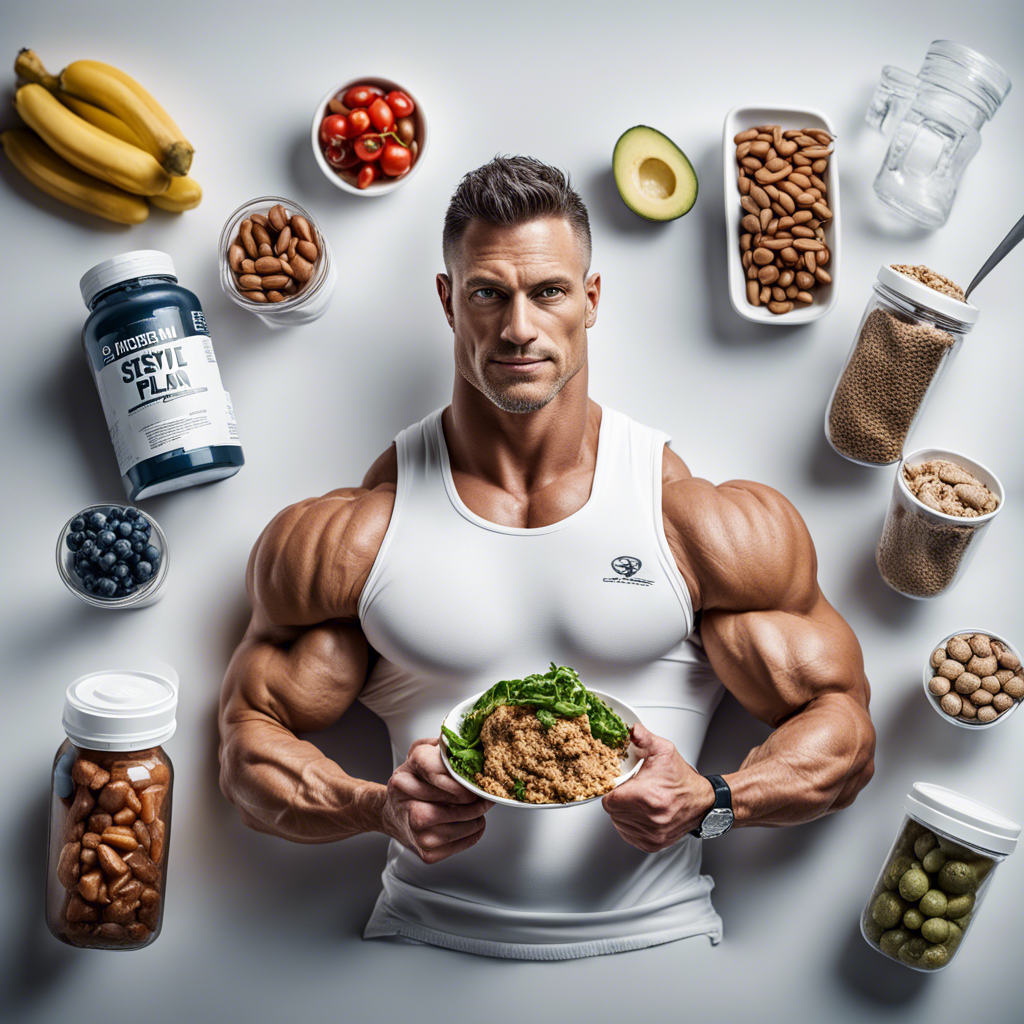How to Create a Muscle-Building Meal Plan with Supplements
Building muscle effectively requires careful planning, dedication, and a comprehensive approach to both nutrition and training. Whether you are new to bodybuilding or seeking to enhance your current regimen, understanding how to design a muscle-building meal plan with supplements is crucial. In this guide, we will delve into the components of a successful meal plan, explore effective supplements for bodybuilding, and provide practical meal prep strategies.

A muscle building meal plan is not just about adding protein shakes and nutritional bars to your diet; it’s about balancing nutrients that promote muscle growth and support overall health. This means focusing on a diet that is rich in high-quality proteins, essential fats, complex carbohydrates, and strategic supplements. Whether your gym is a high-tech fitness center or a compact home gym optimized with essentials, this guide will help you achieve your muscle-building goals.
Understanding the Muscle Building Meal Plan
The Importance of a High Protein Meal Plan
A high protein meal plan is the cornerstone of muscle gain diets. Protein is vital for muscle repair and growth, with amino acids serving as the building blocks of muscle tissue. The general guideline is to consume approximately 1.6 to 2.2 grams of protein per kilogram of body weight per day for effective muscle growth. This includes lean sources such as chicken, turkey, fish, eggs, and plant-based options like lentils and tofu.
For instance, a day on a high protein meal plan might start with a breakfast of scrambled eggs and spinach, followed by a lunch of grilled chicken breast with quinoa and a side of steamed vegetables. Dinner can include salmon and a sweet potato, rounded off with snacks like Greek yogurt or protein shakes throughout the day to maintain protein intake.
Balancing Carbohydrates and Fats
While protein plays a pivotal role in a muscle gain diet, carbohydrates and fats are equally important as they provide the necessary energy to fuel workouts and aid in recovery. Complex carbohydrates such as brown rice, oats, and whole grains should be consumed to provide sustained energy. Healthy fats from sources like avocados, nuts, and olive oil are essential for hormone production and overall inflammation reduction.
Incorporating these macronutrients in your diet ensures balanced nutrition for muscle building. For example, include a post-workout meal of whole grain pasta with a lean protein source and a fat element like olive oil dressing for optimal benefits.
Meal Prep for Bodybuilding
Meal prep is a practical strategy that ensures adherence to your nutritional plan and consistency in meals. Preparing meals in advance reduces the temptation to reach for convenience foods and maintains the integrity of your muscle building meal plan. Scheduling a weekly prep session to cook and portion meals can help in tracking and managing your nutrient intake effectively.
Start by crafting weekly menus and shopping lists. Focus on ingredient variety and balance, then devote a few hours to cooking, freezing, and storing meals for the week. Ensure your fridge is stocked with protein sources, complex carbs, and healthy fats, making it easier to assemble meals quickly and efficiently.
Incorporating Supplements for Muscle Growth
Effective Supplements for Bodybuilding
Supplements for muscle growth can enhance your diet and training regimen by providing nutrients and compounds that may be challenging to obtain from food alone. Creatine, for example, is a popular supplement that aids in increasing strength and muscle mass. Similarly, branched-chain amino acids (BCAAs) are known to reduce muscle fatigue and accelerate recovery.
In addition to creatine and BCAAs, protein powders like whey and casein are convenient sources of protein that can supplement a high protein meal plan. Including these effective supplements for bodybuilding can optimize your body’s ability to synthesize new muscle tissue when combined with the right diet and exercise.
How to Integrate Supplements into Your Diet
To effectively integrate supplements, timing and dosage are key. For instance, creatine may be taken pre or post-workout to maximize its benefits, usually in 5-gram doses. BCAAs can be consumed before or during workouts to minimize muscle breakdown and hydration needs.
Protein powders offer flexibility as they can be mixed into shakes, added to smoothies, or even stirred into oatmeal. Consider your daily protein needs and adjust your intake of these supplements based on the total protein intake from your meals to avoid excess consumption.
Nutritional Synergy: Supplements and Whole Foods
While supplements are beneficial, they should not replace whole foods in your diet. Whole foods provide complete nutritional profiles, including vitamins, minerals, and enzymes that work in tandem for optimal health and muscle growth. Aim to strike a balance where supplements fill the nutritional gaps without overshadowing the importance of a balanced diet composed of whole ingredients.
The Best Approach for a Muscle Gain Diet
Customizing Your Muscle Gain Diet
Customization is key when building the most effective muscle gain diet. Consider personal factors like age, gender, activity level, and specific fitness goals. For optimal results, it might be beneficial to consult with a nutritionist who can tailor a plan to meet your needs.
A sample customized meal plan might include six small meals spread throughout the day, ensuring a steady intake of nutrients. Incorporate both animal and plant-based proteins, a variety of colorful vegetables, healthy fats, and strategic use of supplements to create a well-rounded diet.
Tracking Your Progress and Adjusting Your Diet
Regularly tracking your performance and physical changes is essential for tweaking your muscle gain diet as needed. Utilize tools such as food diaries, mobile apps, or progress photographs to monitor changes and identify areas that may require adjustment.
If you find yourself plateauing, reassess your diet and supplement intake. Consider increasing protein or altering carbohydrate levels to push past muscle growth barriers. Continual refinement based on feedback from your body is a crucial aspect of successful bodybuilding.
Dietary Considerations for Enhanced Success
Pay attention to dietary considerations that can enhance muscle growth. For example, staying adequately hydrated supports muscle function and recovery, while ensuring sufficient micronutrient intake from fruits and vegetables supports overall health and vitality.
Remember to maintain diversity and interest in your diet to prevent monotony and sustain long-term adherence. Try new recipes, experiment with different cuisines, and periodically reassess your meal plan to keep it effective and enjoyable.

Frequently Asked Questions
How often should I change my muscle building meal plan?
It’s advisable to review and potentially adjust your muscle-building meal plan every 4-6 weeks. This allows you to accommodate changes in body composition, exercise intensity, and goals. Monitoring your progress through weight, measurements, and performance feedback is critical in determining when change is necessary.
Are supplements necessary for muscle growth?
Supplements are not strictly necessary for muscle growth but can be beneficial for ensuring you meet your nutritional needs, especially in a high-demand training program. Foods should be the primary sources of nutrients, with supplements like protein powders, creatine, and BCAAs serving as tools to optimize intake and efficiency.
What is a simple meal prep strategy for beginners?
Begin with a basic plan focusing on high-protein foods and simple recipes. Cook in bulk—such as grilling several chicken breasts or making a large batch of brown rice—and portion into containers. Use foods that can be easily combined or modified for variety, like switching vegetables or using different sauces.
Can I achieve muscle growth with a plant-based diet?
Absolutely, a plant-based diet can support muscle growth provided it includes adequate protein from sources like legumes, nuts, seeds, and soy products. Consider incorporating plant-based protein powders if needed, and ensure a diverse intake of foods to meet all essential amino acids and micronutrient requirements.
What are the best compact home gym essentials?
Essential equipment for a compact home gym includes adjustable dumbbells, resistance bands, a stability ball, and a yoga mat. This setup allows for a variety of exercises targeting multiple muscle groups without excessive space requirements. Additionally, these tools can support a range of workouts from strength-building to flexibility training.
Conclusion
Creating a successful muscle building meal plan incorporates a thorough understanding of your nutritional needs, practical meal preparation, and the strategic use of supplements. This comprehensive approach ensures not only muscle growth but also overall health and vitality as it balances various dietary components.
As with any fitness or dietary plan, consistency is key. Maintaining commitment to your meal plan, tracking your progress meticulously, and making timely adjustments are essential for achieving long-term bodybuilding success. Remember to fuse personal preferences with nutritional science to create a plan that is both effective and sustainable.
Finally, the effectiveness of a muscle gain diet is enhanced when combined with regular exercise, whether at a commercial gym or within your compact home gym essentials. Keep experimenting, learning, and adapting as you journey towards your muscle-building goals.
Suggested Video Topics
1. “The Ultimate Guide to Packing Protein: Meal Prep Tips for Muscle Growth”
2. “Top 5 Effective Supplements for Bodybuilding: What You Need to Know”
3. “How to Optimize Your Compact Home Gym for Maximum Muscle Gains”

